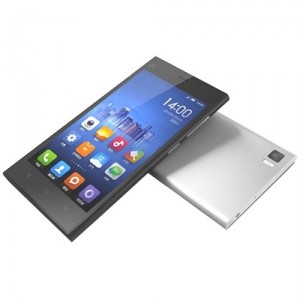New reports by Kantar World Panel, released on July 30th, 2014, suggest that Apple Inc.’s (NASDAQ:AAPL) China successes, impressive as they are, have been overshadowed by left-field challenger Xiaomi. Xiaomi is a relatively new smartphone manufacturer which is offering sturdy competition to the long-established tech firms in several BRIC markets. The Beijing based firm’s sales strategy is iPhone-like appearance and quality features (such as stainless steel cases) combined with prices set at 50% of an iPhone or a Galaxy.
Xiaomi’s tactics seem to be paying off considerably in 2014, as multiple sources seem to indicate the electronics firm is steadily gaining momentum, market share, and revenue. Its growth represents a hazard to other companies operating in China, since, according to Kantar, 70% of its sales are to people who already owned smartphones, but only 20% of those are upgrades from earlier Xiaomi models.
 The Mi 3 and Mi 4 are gaining market share by predatory success, and seven sales out of every 10 the Beijing company makes are seven less sales for Samsung, Nokia, and Apple (AAPL). Analyst Dominic Sunnebo provides figures on the number of current Chinese users of other brands who mean to switch to Xiaomi smartphones next time they upgrade.
The Mi 3 and Mi 4 are gaining market share by predatory success, and seven sales out of every 10 the Beijing company makes are seven less sales for Samsung, Nokia, and Apple (AAPL). Analyst Dominic Sunnebo provides figures on the number of current Chinese users of other brands who mean to switch to Xiaomi smartphones next time they upgrade.
iPhone users are least likely to change, with 8% planning to change from an iPhone to a Mi. 12% of Samsung customers want to jettison their Galaxy in favor of a Xiaomi phone, while Mr. Sunnebo reports that Chinese brands such as Huawei are being decimated by Xiaomi’s success as it supplants them rapidly among consumers who have always used national brands. The new $325 Mi 4 is 4G capable, deftly taking advantage of the new 4G networks that were developed largely to service Apple iPhones following the Cupertino company’s contracts with major Chinese telecommunications companies earlier this year.
Apple’s (AAPL) market share in China is 16%, while Xiaomi has rocketed ahead to 27%, leaving even Samsung’s 21% share in the dust. Apple’s hopes for Middle Kingdom success might fizzle out in the hurricane winds of Xiaomi’s advance. Furthermore, another market that Apple has pinned considerable hopes on, that of India, is also targeted by its Beijing rival.
Xiaomi’s smartphones are in immense demand on the Indian subcontinent, but at the moment, it appears that the Chinese firm’s marketing strategy there may backfire. Its “flash sales,” in which limited numbers of phones are sold online only, have been selling out in as little as 5 seconds for tens of thousands of units offered, which has infuriated large numbers of Indian customers. In this environment, Apple’s (AAPL) reliable availability may serve it well against Xiaomi unless the Chinese manufacturer shifts to a radically different supply strategy.



